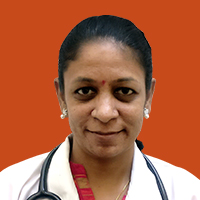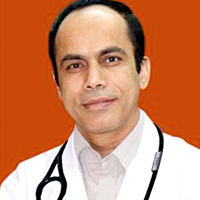

Successful Treatments
Clinics
Doctors
What is Cancer?
Cancer, a deadly disease, involves uncontrolled growth of abnormal cells and tissues that manifests in tumors, invading surrounding tissues and organs. Cancer can arise anywhere in the body and is classified according to the cells from which it arises.
Ayurveda does not consider cancer a single disease but identifies various abnormal growths in the body as Gradthi (minor swelling) and Arbuda (major swelling). As per Ayurveda, it is believed to arise from imbalances in the body's three basic energies (doshas): Vata (movement), Pitta (transformation), and Kapha (structure). If any of these doshas are out of balance due to improper diet, unhealthy lifestyle, stress or environmental toxins, this can result in accumulation of toxins in your body and weakening of your natural defenses. As time passes,this imbalance and toxin buildup can disrupt the functioning of your cells and lead to diseases such as cancer.
Types of Cancer
Cancer is a group of diseases that can impact almost any part of your body. Each type is named based on the part of the body or as per the sort of cells from where it starts. This helps Ayurvedic doctors determine the best treatment for your particular situation.
These are the main cancer types:
- Carcinoma: The most common kind of cancer is carcinoma. It begins in your skin or the tissues covering inner organs like your lungs, liver, breasts or kidneys. You must have heard of diseases like ovarian cancer, lung cancer, and colon cancer. These are basically carcinomas.
- Sarcoma: Sarcoma begins in your bones, muscles, fat, blood vessels, or tissues. Sarcomas include bone cancer and soft tissue cancers.
- Leukemia: Leukemia is a blood and bone marrow disease. It produces abnormal white blood cells that crowd healthy cells out. You should know that Leukemia does not form solid tumours.
- Lymphoma: This kind of cancer impacts your lymphatic system, a part of your immune system. Lymphomas lead to swelling of your lymph nodes, fever, and weight loss. The 2 main kinds are Hodgkin lymphoma and non-Hodgkin lymphoma.
- Myeloma: Myeloma begins in plasma cells, a white blood cell that fights infection. It can weaken your bones and impair your body's ability to make healthy blood cells.
- Cancers of the Brain and Spinal cord: These cancers start in tissues of spinal cord or the brain. They can easily impact your memory, speech, movement, or balance.
Common Causes of Cancer
As we have discussed earlier, cancer occurs when your body cells start growing and multiplying uncontrollably. Basically, your body knows when you should create new cells and when to eliminate older, damaged cells. But when this natural process fails, damaged cells grow when they shouldn't, leading to cancer.
There's no single cause of cancer. It generally develops over time because of a mix of factors. These are the common causes of cancer:
- Genetic changes (mutations): Sometimes the instructions inside your cells or DNA are damaged. These changes, called mutations, may make your cells grow out of control.
- Use of tobacco: If you smoke or even chew tobacco, you should know that this is the most common reason for cancers of the throat, mouth, lung, and bladder.
- Radiation and UV rays: If you are exposed to damaging radiation or sunlight too much, this can lead to skin cancer.
- Chemical substances and toxins: If you come in contact with harmful substances like asbestos, arsenic, or chemicals in tobacco smoke, this can also cause cancer. Even if you drink excessively, this also increases your risk of cancer.
- Viruses & infection: Certain viruses like HPV (Human Papillomavirus), Hepatitis B or Hepatitis C have been linked to cervix and liver cancers.
- Poor lifestyle and diet: If you are overweight, eat unhealthy foods, do not exercise regularly or are under constant stress, this can also increase your risk of getting cancer.
- Family history: If cancer is in your family, you may have a higher risk of cancer because of inherited genes.
Remember that these symptoms do not always mean you have cancer, but they also shouldn't be dismissed. Early detection saves lives. If you have any doubts or concerns, consult your Ayurvedic doctor.
Jiva Ayunique™ Treatment Philosophy - A Holistic Approach to Cancer
Jiva Ayurveda offers holistic Ayurvedic treatment of cancer using evidence-based Ayurvedic approaches. Our treatment plans are made in a customised manner to target the root causes of cancer, and instead of treating the symptoms only, they focus on complete healing, balance and stability.
Core Principles of the Jiva Ayunique™ Treatment Philosophy
- HACCP approved Ayurvedic medicines: These are scientifically prepared herbal blends that restore your body and support a healthy mind.
- Yoga, meditation and mindfulness: These basic practices help to relax your mind, ease stress, and promote better physical and emotional health.
- Ayurveda therapies: Special treatments like Panchakarma (a deep body cleanse) and soothing massages to detox the body and mind.
- Diet and lifestyle guidance: Personalised advice on dietary habits and lifestyle to feel healthier and better generally.
Ayurvedic Medicines for Cancer
Cancer makes people worried but Ayurveda provides a natural way to support your body against this disease. Ayurvedic herbs have long been used to increase immunity, reduce inflammation and combat unusual cellular development. These are the most common herbs recommended in Ayurveda for cancer.
Ashwagandha (Withania somnifera)
If you feel weak, drained and stressed, Ashwagandha can be your best option. It is a natural energy booster and stress reliever. Ashwagandha is also believed to retard abnormal cell growth in your body. Also, it strengthens your immune system, so you can defend yourself and feel stronger during the healing process.
Amalaki/Amla (Indian Gooseberry)
Amla is a small fruit with big benefits. If you want to protect your body from damage caused by harmful substances, amla is the best supplement for you. It is packed with natural vitamin C and antioxidants, which repair and prevent unhealthy changes that cause cancer. Amla also supports your liver, brain, breast, colon and lungs. It keeps your cells healthy and your system strong.
Turmeric/Haridra (Curcuma longa)
Turmeric has a compound called curcumin, which can be a great support if you have inflammation or if you are worried about cancer cell growth. Curcumin can greatly reduce inflammation and stop cancer cells from spreading. It also prevents cancer from returning and detoxifies your cells naturally.
Giloy/Guduchi (Tinospora cordifolia)
In Ayurveda, we call Giloy the ‘root of immortality.’ Giloy can balance your body’s systems if you are struggling with low immunity or abnormal cell growth. It boosts your immune system and slows the growth of unhealthy cells. When it is used with herbs like turmeric and ashwagandha, it works even better to heal and safeguard your body.
Kalmegh/Racha Vemu
Kalmegh is not so popular yet but it is very useful if you want your body to fight cancer naturally. It has been linked with destroying cancer cells and promoting better organ health. Kalmegh also balances your energies (doshas in Ayurveda) and gives you strength.
Garlic (Allium sativum)
Garlic is a simple but potent herb. Garlic has antioxidants and natural compounds that protect your cells from damage. It can repair your cells and stop them from turning into cancer cells. Studies have shown that garlic can lower your risk of cancers like stomach, breast, pancreas, and prostate. With this, it also helps to build your body's natural defenses against such diseases.
Tulsi (Holy Basil)
Tulsi has been considered a sacred plant for its healing properties. Tulsi helps to reduce stress and increase immunity. It does this by decreasing oxidative stress, the stress brought on by accumulated toxins in your body. Tulsi also supports your body’s natural defenses and makes your cells healthy.
Ayurvedic Treatment for Cancer
In Ayurveda, health is considered to be the state of equilibrium of three doshas in the body - Vata, Pitta, and Kapha. Though Ayurveda cannot guarantee curing cancer, it provides supporting therapies for dealing with the symptoms, improving overall well-being, and sometimes reducing side effects of standard treatments. Ayurvedic intervention is directed at:
Rasayana Therapy: This can be a treatment area involving rejuvenation and enhancing general healthy energy. Some herbal formulations may help to support the health of tissues and build up the immune system.
Diet and Lifestyle Advice: Ayurveda encourages a well-balanced diet and lifestyle, directed towards the constitution (practically the constitution) at a given point in time and imbalances. This might include recommendations for individual foods, the timing of meal consumption, sleep patterns and stress management.
Stress Management: The impact of stress on one's overall well-being is especially important during cancer treatment. Ayurveda suggests meditation, yoga, and Pranayama (breathing exercises) to help relax and reduce stress.
Palliative Care: Ayurveda can be supportive of palliative care, emphasising symptom management such as pain, nausea, fatigue, and insomnia, in order to enhance quality of life.
Supportive Ayurvedic Practices
- Ayurvedic Medicines – Certain Ayurvedic herbs, such as Ashwagandha, Turmeric, and Amalaki, may offer supportive benefits due to their antioxidant, anti-inflammatory, and immune-modulating properties. However, it is crucial to consult with both your oncologist and an Ayurvedic practitioner before using any herbal supplements, as they may interact with conventional cancer treatments.
- Yoga and Meditation – These practices can help to reduce stress, improve sleep, and enhance overall well-being.
- Dietary Guidelines – Adequate diet that is wholesome, fruit- and vegetable-based, and high in whole grains should be encouraged.
FAQs on Cancer and Supportive Care
- Can Ayurveda cure cancer?
No. Ayurveda does not claim to cure cancer. Its role is to provide supportive care in addition to the conventional medical treatment to enhance well-being and potentially manage some side effects.
- Can Ayurvedic herbs interact with chemotherapy or radiotherapy?
Yes, potentially. It's absolutely crucial to inform both your oncologist and your Ayurvedic practitioner about all medications and supplements you are taking, including herbal remedies, to avoid any harmful interactions.
- What role does diet play in cancer care?
Maintaining a healthy, well-balanced diet plays an essential role in keeping the entire body well, thereby providing strength and maintaining one's weight. The diet also strengthens the body to prevent damage by supporting the immune system.
- How can I handle stress in cancer treatment?
Stress management techniques, such as yoga, meditation, deep breathing exercises, mindfulness, and counseling, can really help manage the emotional and mental challenges of cancer treatment.
- Can Ayurveda help to alleviate the side effects of cancer treatments, such as nausea and fatigue?
Certain Ayurvedic approaches, including specific dietary recommendations, herbal remedies used with caution and in consultation with your oncologist, and lifestyle adjustments, may be helpful in alleviating some of the side effects.
- Is it safe to combine Ayurveda with conventional cancer treatments?
Combining Ayurveda with conventional cancer treatments is safe if done with close coordination between your oncologist and your Ayurvedic practitioner. Open communication between the two will ensure your safety and well-being.
- Where can I locate a competent Ayurveda practitioner?
A qualified and experienced Ayurveda practitioner who is educated about oncology and understands the importance of integrated care should be sought.
- How does Ayurveda approach well-being in Cancer Care ?
Ayurveda works on keeping the body and mind in balance. It does not promote any assured cure for cancer, rather helps ease symptoms and lessen some side effects of standard treatments.
Top Ayurveda Doctors
Our Happy Patients
Related Disease
Latest Blogs
- Migraine और भोजन का समय: देर से खाना सिरदर्द को क्यों बढ़ा देता है?
- क्या एंटीबायोटिक लेने के बाद पाचन पूरी तरह बिगड़ गया? आयुर्वेद के अनुसार Colitis के उपचार जानें
- अगर मामूली आहार भी पाचन तंत्र सहन न कर पाए तो Colitis को हल्का क्यों नहीं मानना चाहिए? आयुर्वेदिक दृष्टि से जानें
- लंबे समय से सक्रिय Colitis क्यों शरीर की रिकवरी क्षमता को कमज़ोर कर देती है? आयुर्वेदिक नज़र से जानें
- नॉर्मल एंडोस्कोपी, नॉर्मल रिपोर्ट्स… फिर भी रोज़ दर्द—IBS में गलत इलाज कैसे बीमारी को Chronic बना देता है! आयुर्वेदिक उपचार समझें
- क्या बाहर का खाना या मसालेदार भोजन आपके IBS को तुरंत ट्रिगर कर देता है? आयुर्वेदिक दृष्टि से समझें और कब Ayurvedic doctor से मिलना चाहिए जानें
- IBS में दवाइयाँ काम क्यों नहीं करतीं? आयुर्वेदिक कारण और उपचार समझें
- कभी कब्ज़, कभी दस्त: यह सिर्फ पाचन नहीं, पूरे सिस्टम का असंतुलन हो सकता है! जानें कब Ayurvedic doctor से मिलना ज़रूरी हो जाता है
- क्या सर्दियों में दवाइयों के बावजूद साँस पूरी नहीं खुलती? अस्थमा की जड़ आयुर्वेद से समझें
- क्या धूल, धुआँ या परफ्यूम से तुरंत साँस लेने में तकलीफ़ होती है? Asthma के ट्रिगर आयुर्वेद की नज़र से समझें
- सर्दियों में अस्थमा क्यों ज़्यादा बिगड़ जाता है? ठंडी हवा और कफ-वृद्धि का आयुर्वेदिक कारण जानें
- क्या ठंडी हवा लगते ही सीने में जकड़न और साँस लेने में परेशानी होती है? अस्थमा को आयुर्वेद की नज़र से जानें
- क्या सुबह उठते ही बलगम के साथ खाँसी आना अस्थमा का संकेत है? आयुर्वेद से समझें
- क्या लंबे समय तक लैक्सेटिव का उपयोग आपकी कब्ज़ को और जटिल बना रहा है? आयुर्वेदिक समाधान जानें
- क्या गैस, पेट फूलना और सिरदर्द का साथ में होना Chronic Constipation का क्लासिक पैटर्न है? आयुर्वेदिक व्याख्या समझें
- क्या सुबह नींद खुलते ही पेट साफ न होना ‘धीमी अग्नि’ का संकेत है? दीर्घकालिक कब्ज़ में आयुर्वेदिक कारण जानें next topic
- क्या लंबे समय तक बैठकर काम करने से आपकी कब्ज़ लगातार बढ़ रही है? आयुर्वेदिक दृष्टिकोण देखें
- क्या कब्ज़ के चलते आपकी नींद, ऊर्जा और पाचन सब प्रभावित हो रहे हैं? आयुर्वेद में इसके मूल कारण और ज़रूरी उपाय जानें
- क्या तनाव और चिंता भी Chronic Constipation का छुपा हुआ कारण बन सकते हैं? आयुर्वेदिक दृष्टि देखें
- क्या कई दिनों तक कठोर स्टूल बनना और पेट में ऐंठन रहना Chronic Constipation की पहचान है? आयुर्वेदिक संकेत समझें
Ayurvedic Doctor In Top Cities
- Ayurvedic Doctors in Bangalore
- Ayurvedic Doctors in Pune
- Ayurvedic Doctors in Delhi
- Ayurvedic Doctors in Hyderabad
- Ayurvedic Doctors in Indore
- Ayurvedic Doctors in Mumbai
- Ayurvedic Doctors in Lucknow
- Ayurvedic Doctors in Kolkata
- Ayurvedic Doctors in Patna
- Ayurvedic Doctors in Vadodara
- Ayurvedic Doctors in Ahmedabad
- Ayurvedic Doctors in Chandigarh
- Ayurvedic Doctors in Gurugaon
- Ayurvedic Doctors in Jaipur
- Ayurvedic Doctors in Kanpur
- Ayurvedic Doctors in Noida
- Ayurvedic Doctors in Ranchi
- Ayurvedic Doctors in Bhopal
- Ayurvedic Doctors in Ludhiana
- Ayurvedic Doctors in Dehradun
























